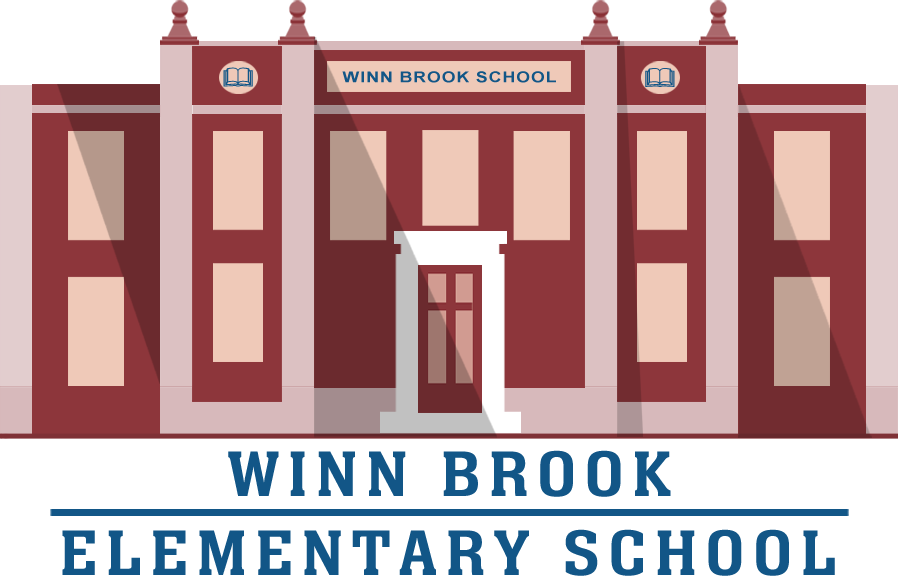Departments
School Curriculum
creative and innovative teaching within its framework. As our body of academic knowledge changes, and as our knowledge of the learning behavior of children changes, so must curriculum change. The Belmont Public Schools provides for that ongoing review and possible change through its Seven-Year-Plan for Curriculum Development and Improvement. Parents and staff work together on curriculum steering committees, during the seven-year-cycle which includes a needs assessment, program evaluation, and development of a plan of action and any necessary piloting of materials or training of staff. This process assures that curriculum continues to be well matched to children and the society in which they will function.
For the most up-to-date information on K-4 curriculum in the Belmont schools, please visit BPS Benchmarks web page.
The Belmont elementary school curriculum is based on the Massachusetts State Frameworks and the Belmont Benchmarks. All students receive instruction in:
Language Arts
Mathematics
Science
Social Studies
Physical Education
The integration of learning across disciplines is a central feature of the elementary program. Overviews of the individual discipline curricula, the Massachusetts State Frameworks, and the Belmont Benchmarks are available from the Winn Brook school office and the Belmont Department of Education website.
Mcas Testing and Assessments
The Massachusetts Comprehensive Assessment System is administered to students in grades 3 and 4 in the spring, per state requirements. Classroom teachers are encouraged to use performance observations, writing folders and projects as part of the assessment of student learning.
Special Subjects (Music, Art, Library, Gym)
Students attend some special subjects as a whole class. Their classroom teacher need not be present during these "specialist" periods. Currently, students in kindergarten have physical education, music, and a library story and book borrowing time once a week. First through fourth graders also have art once a week and they have two periods of physical education ("gym"). Students in grades 2-4 have general music classes twice weekly and they visit the library weekly with their classroom teacher (with volunteers present) for exchanging books, and to learn relevant library skills.
Field Trips
Field trips are designed to enrich the curriculum and provide learning opportunities beyond the classroom. Teachers, individually or by a grade level, make arrangements for field trips. Permission slips for each trip are sent home with children prior to the scheduled event and should be signed and returned to the classroom teacher. Room parents sometimes are asked to assist teachers in arranging parent chaperones. Children may not ride in private cars for field trips. Transportation is by foot, public transportation, or rented busses. The cost of transportation and any admission fee is assumed by parents/guardians. In situations of financial need, the cost for a given child is assumed by the PTA so that no child misses a field trip for this reason.
Homework System-wide Guidelines
Homework is any assigned activity done outside of school which relates to any phase of learning. It can be an enrichment, a refinement, or a reinforcement of learning activities.
Purpose of Homework
To supplement and reinforce skills and work done in class.
To enrich the child's school experience.
To provide opportunities to use skills/knowledge learned in school in creative ways outside of school.
To promote individual responsibility.
To teach ability to budget time and organize one's materials.
To promote independent study and research skills.
To help children make up work lost through absence after appropriate instruction has been given in school.
Role of Teachers
to design homework to accomplish a specific purpose closely related to the curriculum for the grade level.
to assign the homework carefully making sure the assignment is clear.
to assist the pupils in learning how to study.
to examine completed homework assignment so that the instructional program can be adapted to meet observed needs.
to communicate with pupil and parent when problems concerning homework arise.
to vary types of assignments to address different needs.
AssignmentsTime and FrequencyGrade 1Discretion of the teacher, Monday - ThursdayGrade 2Discretion of the teacher, Monday - ThursdayGrade 330 minutes - Monday - ThursdayGrade 430 minutes - Monday - Thursday
For all grades, reading aloud or independent reading are encouraged whenever there is time.
Role of Student
to be responsible for the completion of assignments.
to confer with parents and/or teachers if assignments are not clear or are too difficult.
Role of Parents/Guardians
to encourage the child to accept the responsibility for completing home assignments.
to provide a quiet study environment.
to assist the child when the teacher and parent have conferred, and agreed that this assistance would be helpful.
to confer with the teacher if assignments are unclear or too difficult.
to notify the teacher if an unforeseen occurrence prevents the child from completing an assignment.
